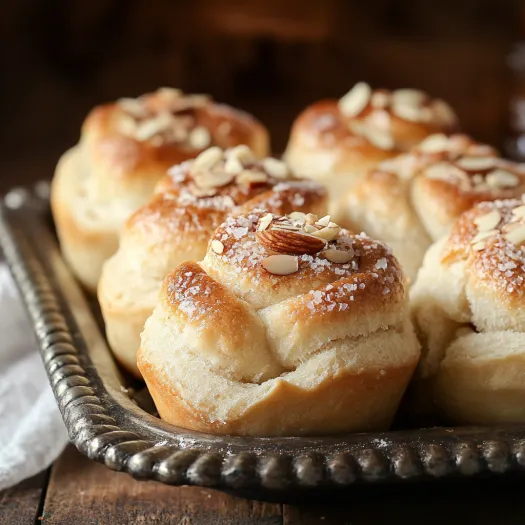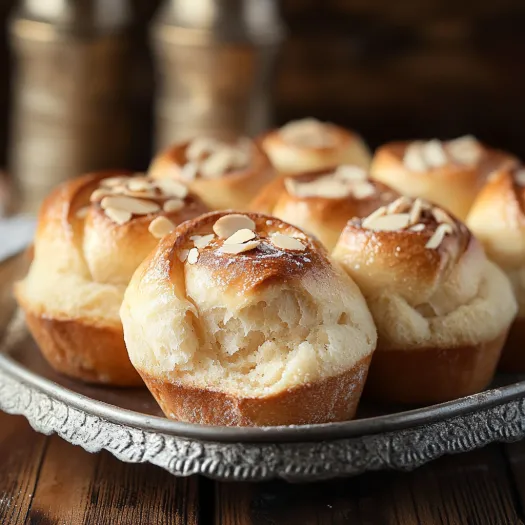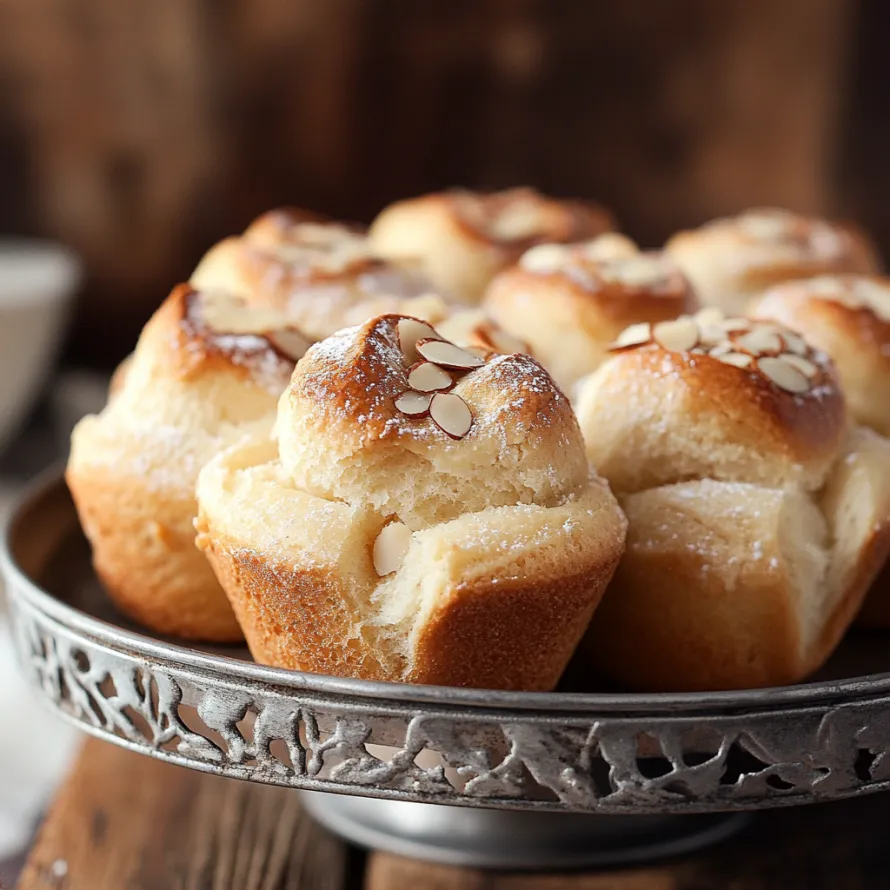 Pin
Pin
This alpine almond roll formula takes mountain baking to new heights with spicy cardamom undertones and deep nutty goodness that makes them a must-have for family get-togethers. The night-long chilling builds amazing taste while cutting down your morning work to almost nothing.
I came up with this after several cooking flops during a holiday breakfast at our upland cabin. When normal recipes kept failing, these rolls finally worked perfectly at 7,000 feet, and now my family won't let me make anything else when we've got people staying over.
What You'll Need
- Cinnamon Roll Dough formula: Makes the ideal soft base for our almond creations
- Ground cardamom: Takes the place of nutmeg for a unique Nordic touch that works amazingly with almond
- Almond extract: Boosted to 2½ teaspoons to fill your home with that wonderful smell
- Unsalted butter: Adds needed moisture and richness without too much salt
- Granulated sugar: Brings just enough sweetness that doesn't drown out the light almond taste
- Almond flour: Adds great texture and stronger nutty flavor than sliced almonds ever could
How To Make Them
- Mix Your Dough:
- Follow the cinnamon roll dough steps but use cardamom instead of nutmeg and put in 2½ teaspoons of almond extract. The cardamom adds warmth that works better with almond than plain cinnamon would.
- Let It Rest Overnight:
- Once the dough has doubled in size, wrap it up tight and stick it in the fridge till morning. This slow cooling brings out amazing flavors and makes the dough way easier to work with. I've found this step can't be skipped if you want perfect mountain-baked rolls.
- Flatten The Dough:
- On a slightly floured counter, roll your cold dough into a 12x18 inch flat rectangle. Cold dough is much simpler to spread thin without it tearing. Try to keep the thickness even everywhere for matching rolls.
- Put In The Filling:
- Brush melted butter all over the dough surface, right to the edges. Mix sugar with almond flour completely before sprinkling it over the buttered dough. Pat it down gently so it sticks when you roll it up.
- Form Your Rolls:
- From one long side, roll the dough up tightly using your fingers to keep it snug. Cut into 12 same-sized pieces with a sharp knife using a gentle back-and-forth motion, or try dental floss for the neatest cuts.
- Rise Again:
- Put your cut rolls in a buttered muffin tin or baking dish. Cover with a kitchen towel and let them sit in a warm spot for only 20 minutes. When baking up high, you need shorter rising times so they don't puff up too much and then fall flat.
- Cook Them Right:
- Bake in a heated 350°F oven until they reach 190°F inside. Keep an eye on them since the tops should stay light golden rather than dark brown to make sure they're cooked through without getting dry.

I truly love using almond flour in the filling. My grandma always put marzipan in her Swedish holiday treats, and this gives a similar rich taste without going overboard. The first time I made these at our mountain house, even my father-in-law, who hardly ever talks about food, wanted to know how I made them.
Mountain Baking Tricks
These rolls work so well at high elevations because of a few smart changes. First, cooling them overnight slows down the yeast so they don't rise too fast and then sink, which happens a lot in mountain baking. Second, using muffin tins gives them support to keep their shape. Last, checking their temperature inside makes sure they're fully baked, even though things often cook faster at higher places. Even if you live at sea level, these tricks will help your rolls turn out better every time.
Different Tastes To Try
The almond and cardamom mix is amazing, but you can play around with this formula too. Try adding orange peel to the filling for bright tangy notes that go great with almond. For a more traditional Nordic take, throw some pearl sugar on top before baking. You could even mix in a spoonful of tahini with the filling for a grown-up sesame hint that works surprisingly well with almond. Each change keeps the core idea but brings new tastes to enjoy.
Ways To Serve Them
These sweet rolls taste great on their own, but for special times, try a thin drizzle of simple almond icing made from powdered sugar, a bit of milk, and extra almond extract. They look great next to fresh berries, or paired with strong coffee to cut the sweetness. When I host holiday brunches, I put these rolls in the middle of a breakfast spread with savory stuff like smoked salmon and scrambled eggs around them. It always wows my guests.

This formula will make any breakfast gathering feel super special and have everyone coming back for more. Have fun baking!
Recipe Q&A
- → Why is this specifically for high altitudes?
Baking at higher elevations needs tweaks because the air pressure’s lower, which changes how dough rises and holds moisture. This method accounts for those changes to give great results.
- → Is chilling the dough overnight crucial?
Overnight chilling adds flavor and makes the dough easier to handle. If time’s short, let the dough rise fully at room temperature, then shape and bake. The texture might differ slightly without the chill.
- → Muffin tin or baking dish—what’s better?
Use a muffin tin for crispier edges and even baking, or try a baking dish for softer rolls you can pull apart. Muffin tins bake quicker (18-20 mins vs. 20-25 mins in a dish), so pick depending on your preference.
- → What substitutes work for almond flour?
No almond flour? Finely grind regular almonds, or swap with graham cracker crumbs or cookie crumbs if nuts aren’t an option. Using cinnamon sugar filling changes the flavor a lot, but it works too.
- → How do I know when they’re done baking?
The rolls will puff up and look just lightly golden. Stick a digital thermometer into the center—when it hits 190°F, they’re perfectly baked. This prevents dry rolls from overbaking.
- → Why is there cardamom in here?
Cardamom gives a warm, fragrant touch that balances the almond. Common in Nordic and Middle Eastern pastries, it brings extra depth to the sweet filling and dough flavors.
